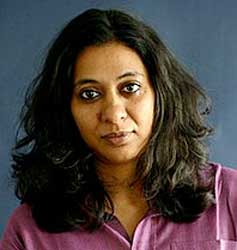India's 'Peace Force' launches Facebook clean-up mission

Ravi Ghate, a social entrepreneur in the western city of Pune, set up the "Social Peace Force" group on Facebook a week ago following riots in the area, sparked by controversial photos of local leaders posted on the website.
Since then more than 15 000 people have joined the group, whose plan is to click the "report spam" button en masse when they see a post they deem offensive, in a bid to force Facebook to take it down.
"I was thinking, how can we tackle this problem. We must have some method to stop it at the source on Facebook," Ghate said.
He said the group would only target religious posts that could provoke riots, not political ones.
"Simply, its a Youth Group to stop Anti-Social Messages on FB!" says a message on the group page.
Rioting in Pune
Riots broke out in Pune at the beginning of the month after pictures appeared on Facebook showing a 17th century Indian warrior king linked to a hardline local Hindu nationalist party, and Bal Thackeray, the party's divisive late leader.
A Muslim man, who had no connection to the posting, was beaten to death by members of a radical Hindu group during the riots, police said, while dozens of buses were damaged.
A week later more violence erupted in the area over postings about B.R Ambedkar, one of the chief architects of India's constitution.
Despite the new group's peaceful intentions, some expressed concerns it could threaten freedom of speech.
"Unfortunately, any effort to contain freedom of expression, even those with worthy intent, tend to become subjective choices on what is deemed 'offensive'," said Meenakshi Ganguly, South Asia Director of Human Rights Watch.
"It is perhaps better to use their own freedom of expression to disagree with postings and inform opinion," he said.
Moral policing
Mumbai sociologist Nandini Sardesai accused the force of moral policing. "While the group says it is focused on religious posts, it is political ones that have proved problematic," she said.
Religiously diverse India, which is about 80% Hindu, has powerful censors and tough laws against inciting communal violence.
Many authors and artists practise self-censorship for fear of sparking unrest.
"Facebook does not remove content from its site entirely unless it violates the company's statement of rights and responsibilities," said Carson Dalton, a spokesman for the company in India.
"Facebook has created global community standards for content that we believe are a very sound framework for allowing people to express themselves while preventing harm that could result from things they post," he added.
Source: AFP via I-Net Bridge
Source: I-Net Bridge

For more than two decades, I-Net Bridge has been one of South Africa’s preferred electronic providers of innovative solutions, data of the highest calibre, reliable platforms and excellent supporting systems. Our products include workstations, web applications and data feeds packaged with in-depth news and powerful analytical tools empowering clients to make meaningful decisions.
We pride ourselves on our wide variety of in-house skills, encompassing multiple platforms and applications. These skills enable us to not only function as a first class facility, but also design, implement and support all our client needs at a level that confirms I-Net Bridge a leader in its field.
Go to: http://www.inet.co.za









